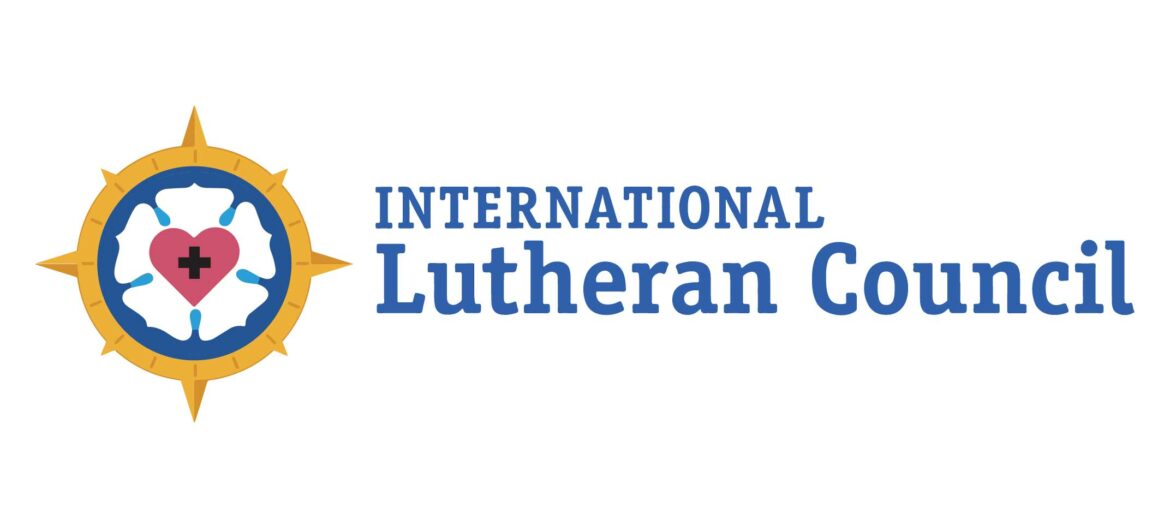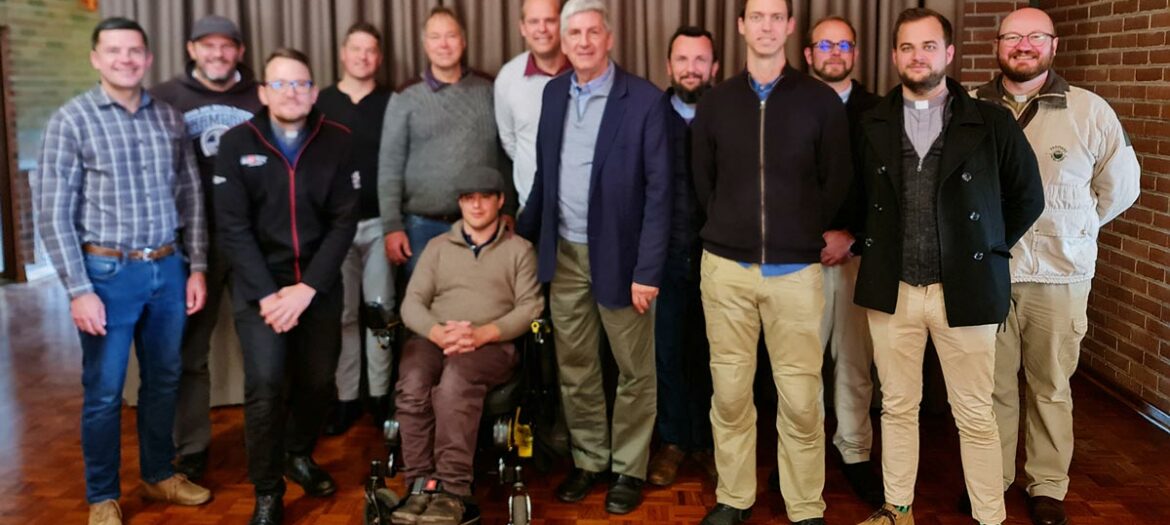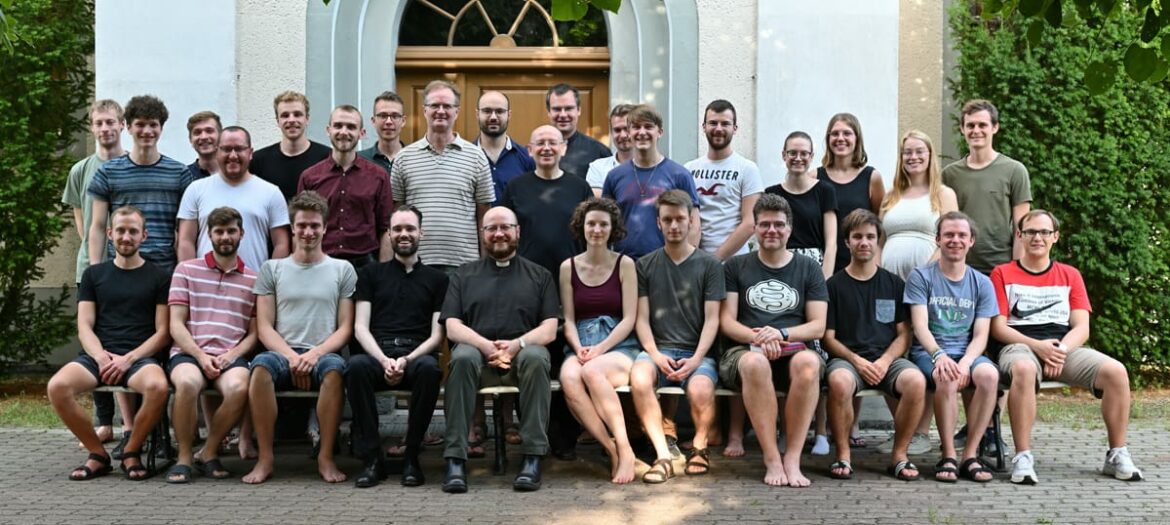A report from selk_news, reprinted with permission
In the festive service on the occasion of the 30th anniversary of the International Lutheran Council (ILC) on 14 October, Prof. Dr Klaus Detlev Schulz (Fort Wayne/USA) was installed as General Secretary of the ILC in St. Mary’s Church in Wittenberg. The liturgist was ILC Chairman Dr Juhana Pohjola, Bishop of the Evangelical Lutheran Missionary Diocese of Finland, who also installed Schulz. The outgoing General Secretary of the ILC, retired Prof. Dr Timothy C.J. Quill (Fort Wayne/USA), preached at the anniversary service.
During the service, Pastor Dr Wilhelm Weber, formerly active in South Africa, was officially installed as pastor of the International Lutheran Society of Wittenberg (ILSW), which runs the International Lutheran Centre in the Old Latin School in Wittenberg, by President Dr Matthew Harrison of the Lutheran Church-Missouri Synod (LCMS). Both the LCMS and the German Independent Evangelical Lutheran Church (SELK) belong to ILSW.
The ILC’s anniversary celebrations continued on the afternoon of 14 October with a keynote address by Rev. Dr Robert Bugbee, former president of Lutheran Church-Canada and current member of the ILC Board of Directors. Bugbee drew attention to honouring two leaders who have played important roles in the ILC’s recent history: outgoing ILC General Secretary Timothy Quill and former ILC Chair Bishop Hans-Jörg Voigt D.D. of the SELK. ILC President Juhana Pohjola addressed each of these pastors individually, highlighting their contributions to the growth of the ILC and its growth into the strong voice of confessional Lutheranism worldwide that it has become. Pohjola and Bugbee then presented Bishop Voigt and Prof Quill each with a plaque in recognition of their service.
Archbishop Joseph Ochola Omolo of the Evangelical Lutheran Church of Kenya discussed some of the challenges facing Lutherans in Africa and other developing regions in general: namely, pressure from external organisations that offer funding and grants to churches but undermine these churches’ adherence to the authority of the Holy Scriptures. For this reason, Omolo praised the ILC’s focus on strengthening seminary education and the training of church workers. As a result of this work, he said: “I see that the future of confessional Lutheranism in Africa is getting stronger and stronger.” And this strength can be seen today in the growing number of ILC member churches in Africa.
President Alceu Alton Figur of the Evangelical Lutheran Church of Paraguay spoke about the growth and strong fellowship of Latin American Lutheranism. He noted, for example, that when the ILC was reorganised into a council in 1993, the region had seven church bodies as members; today there are eleven. And co-operation between the churches in the region – for example in seminary training – is leading to increasingly fruitful missionary work abroad. This missionary impulse is itself a consequence of the missionary work of confessional Lutheran missionaries in Latin America a century ago.
In conclusion, President Harrison (LCMS) brought a North American perspective to the deliberations. “It is a desperate time in Western society,” he said, identifying the challenges of today. But this too can lead to greater unity in the church if confessional Lutherans learn to face these challenges together. Although there are challenges in the West – for example, declining numbers of theological students – he noted that cooperation between ILC member churches helps churches to be strong together. He noted that Brazil has begun sending some of its seminary graduates to the United States – a testament to both the missionary zeal of the Brazilian church and the need in the United States to provide pastors to growing immigrant congregations.
As the ILC looks to the future, President Harrison said, a focus on a collaborative way of working together is to proactively recognise its unique strengths and apply them wherever there is a need. “We need to recognise the unique capabilities of the ILC,” he said – resources such as theological training capacity, language skills and more – “and apply them to specific situations on the ground.”
At the end of the anniversary celebrations, the ILC published a new statement in which it reaffirmed its commitment to the authority of Holy Scripture, regardless of the changing ethical attitudes of today’s societies. ILC President Pohjola read out the statement, entitled “Confessing the Faith with an Undaunted Heart”. – “We expect the churches of the ILC and exhort the churches that are not members of the ILC to uphold, confess and put into practice the ethical standards as revealed in the Holy Scriptures,” the document reads. The statement reaffirms the ILC’s unwavering commitment “that Scripture guides not only the doctrine but also the life and morals of the church”. The statement particularly emphasises the ILC’s adherence to historic Christian teaching on issues of human life, but also takes a stand on marriage, human sexuality, inter-church communion, ordination and more.




